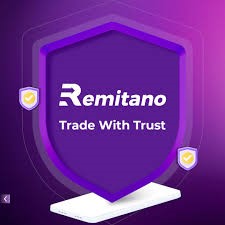9 Benefits of CAC Registration for Your Business
Starting and running a business involves many steps, but one of the most crucial is registering your business with the Corporate Affairs Commission (CAC). In Nigeria, CAC registration is a legal requirement for businesses, but it also comes with a host of benefits that can help entrepreneurs, small business owners, startups, freelancers, and business consultants grow and succeed. In this blog post, we will explore the key advantages of CAC registration, provide practical advice for getting started, and address some common questions about the process.
What Is CAC Registration?
The Corporate Affairs Commission (CAC) is the government body in Nigeria responsible for regulating and managing business registrations. CAC registration involves officially documenting your business as a legal entity with the government. Depending on your needs, you can register your business as a sole proprietorship, partnership, or company (private or public).
Why Is CAC Registration Important?
Before diving into the benefits, it’s important to understand why CAC registration is essential. Operating without proper registration can lead to legal issues, such as fines or business closure. Moreover, registering your business gives it a formal identity, which is crucial for accessing various opportunities and services.
Key Benefits of CAC Registration
-
Legal Recognition and Credibility
One of the primary advantages of CAC registration is that it provides your business with legal recognition. A registered business is seen as credible and trustworthy by clients, partners, and financial institutions. For instance, if you want to open a business bank account or collaborate with other companies, CAC registration is often a prerequisite.
Real-World Example: Imagine a freelance graphic designer who wants to pitch services to a multinational company. Many large corporations require proof of registration before signing contracts, so having a CAC certificate can make the difference between landing a client or losing out.
-
Access to Financial Services
A registered business can open a corporate bank account, making it easier to manage finances, receive payments, and deposit money securely. Banks typically require a CAC certificate, a Tax Identification Number (TIN), and other supporting documents to open such accounts. Additionally, many financial institutions and fintech platforms, such as Remitano wallet services, prioritize working with registered businesses.
Practical Tip: When opening a business bank account, ensure you resolve deposit issues promptly by double-checking the account details and providing accurate information during transactions.
-
Eligibility for Loans and Grants
Many government and private-sector initiatives offer loans and grants to support small businesses and startups, but registration is often a prerequisite. A registered business can access these funding opportunities, which can be used for operations, marketing, or scaling.
Example: Several Nigerian startups have benefited from programs like the Federal Government’s MSME Survival Fund, which is only available to registered businesses.
-
Protection of Business Name
Registering your business ensures that your chosen name is protected and cannot be used by another entity. This exclusivity helps build your brand identity and prevents competitors from leveraging your goodwill.
Practical Tip: Conduct a name search on the CAC platform before registration to confirm that your preferred name is available.
-
Access to Contracts and Partnerships
Many large organizations, government agencies, and international companies require vendors to be registered businesses before awarding contracts or forming partnerships. CAC registration opens doors to such opportunities, giving your business a competitive edge.
Example: A small consulting firm can bid for government contracts or partner with foreign companies if it has the necessary legal documentation.
-
Tax Advantages and Compliance
Registering your business allows you to obtain a Tax Identification Number (TIN) and comply with tax regulations. While paying taxes might not seem like a benefit, being tax-compliant ensures your business operates smoothly without legal hurdles. Moreover, tax compliance makes it easier to claim tax incentives or refunds when applicable.
Practical Tip: Work with a tax consultant to understand your obligations and leverage tax benefits for small businesses.
-
Improved Business Reputation
A registered business appears more professional to potential clients and investors. For instance, displaying your CAC registration number on your website, invoices, and marketing materials can boost confidence in your brand.
Example: A startup offering cryptocurrency wallet funding services can attract more users by showcasing its legitimacy through CAC registration.
-
Ease of Expanding Your Business
With a CAC-registered business, you can easily scale operations by entering into agreements with investors or partners. Additionally, registration makes it easier to secure trademarks, patents, and other intellectual property protections as your business grows.
Real-World Example: Tech startups offering innovative solutions, such as Remitano wallet integrations, can protect their proprietary software and attract venture capitalists by being registered.
-
Long-Term Sustainability
A registered business is more likely to outlast its unregistered counterparts. Registration formalizes your operations, helping you plan for succession, attract investment, and build a legacy.
Practical Tip: Keep your CAC registration updated by filing annual returns and notifying the commission of any changes to your business structure.
How to Register Your Business with CAC
Follow these steps to register your business with the Corporate Affairs Commission:
- Conduct a Name Search: Visit the CAC portal to check the availability of your preferred business name.
- Choose a Business Structure: Decide whether to register as a sole proprietorship, partnership, or company.
- Complete the Registration Forms: Fill out the necessary forms online, providing accurate information about your business.
- Submit Required Documents: Upload copies of your identification, proof of address, and other supporting documents.
- Pay the Registration Fee: The cost depends on your chosen business structure.
- Obtain Your CAC Certificate: Once approved, you will receive your certificate of incorporation or registration.
Practical Tip: If you encounter any issues during the process, consult a business consultant or lawyer for guidance.
Common Misconceptions About CAC Registration
-
“It’s Too Expensive”
Many entrepreneurs believe that CAC registration is costly, but the fees are affordable and vary depending on the type of business.
-
“It’s Not Necessary for Small Businesses”
Even freelancers and small business owners can benefit significantly from registration, as it opens doors to opportunities and provides legal protection.
How to Register Your Business with CAC Online: The Ultimate Guide
CAC registration is more than just a legal obligation; it’s an investment in your business’s future. From gaining credibility and protecting your brand to accessing financial services and scaling your operations, the benefits are substantial. Whether you’re an entrepreneur, small business owner, freelancer, or consultant, taking the step to register your business with CAC is a move toward long-term success and sustainability.
Start the process today, and position your business for growth and credibility in an ever-competitive market. If you’re unsure how to proceed, consult a professional or visit the CAC’s official website for more information.







Thank you for your articles. They are very helpful to me. May I ask you a question? http://www.hairstylesvip.com